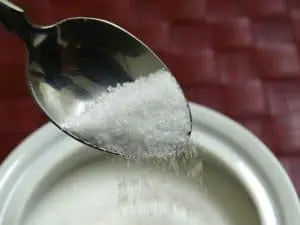 You’ll always hear your dentist in Wicker Park talk about the importance of brushing and flossing your teeth to maintain a healthy mouth. But it may come as a surprise to you to hear your dentist talk about the benefits of chewing gum. That’s exactly what we’re here to do. However, not just any gum will do. It’s important to check the ingredients. Does it contain sugar? It’s no good. How about high fructose corn syrup or saccharine? No, those aren’t great either. What about xylitol? Now that’s the good stuff! Let’s check out why this sweetener gets our seal of approval.
You’ll always hear your dentist in Wicker Park talk about the importance of brushing and flossing your teeth to maintain a healthy mouth. But it may come as a surprise to you to hear your dentist talk about the benefits of chewing gum. That’s exactly what we’re here to do. However, not just any gum will do. It’s important to check the ingredients. Does it contain sugar? It’s no good. How about high fructose corn syrup or saccharine? No, those aren’t great either. What about xylitol? Now that’s the good stuff! Let’s check out why this sweetener gets our seal of approval.
While xylitol is yet another sugar substitute, it’s actually quite different from many others available at your local grocery store. First of all, xylitol is natural — it’s found in fruits, veggies, and even in our bodies during digestion. Second, xylitol tastes like sugar but doesn’t act like sugar once it’s in our bodies. This means you can still have a sweet treat without all of the negative side effects of actual sugar. You see, sugar is pretty harmful to our overall health. It can spike blood glucose levels and, over time, cause difficulties with your metabolism. This may result in weight gain or make it difficult to lose weight. Xylitol, on the other hand, is low in calories (it has 40% fewer calories than sugar!) and has a low glycemic index. As a result, blood glucose levels are nearly unaffected by xylitol, and bodies are protected. But that’s not all. As your dentist in Wicker Park knows, xylitol may protect oral health, too.
We already know that xylitol is a healthier alternative to sugar and can protect our bodies. But the oral benefits of xylitol are also plentiful. Chewing gum that contains xylitol may:
How does xylitol do all of that? We’re glad you asked.
Essentially, xylitol starves a dangerous bacteria commonly found in our mouths called Streptococcus mutans. These bacteria love to feed on sugar as it gives them fuel and allows them to multiply, which is a big problem. Streptococcus mutans is the main cause of plaque buildup, and when there are too many Streptococcus mutans, there’s probably also too much plaque. The result? An increased likelihood of developing cavities. But when we replace sugar with xylitol, we see a much different result. Streptococcus mutans bacteria will still feed on the xylitol, but instead of fueling the bacteria, xylitol actually starves them and they start to die. This means fewer bacteria and a lower risk of decay.
Even though chewing xylitol gum can go a long way in protecting teeth, it is not a replacement for good old-fashioned oral hygiene. Yes, gum can freshen breath, and yes, xylitol can help prevent decay, but if you don’t brush and you don’t floss, and if you don’t see your dentist in Wicker Park regularly, chances are xylitol won’t be enough to protect your teeth.